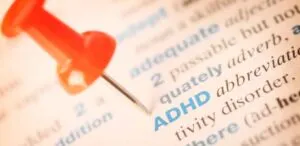Histrionic Personality Disorder:
Histrionic Personality Disorder (HPD) is a psychological health condition characterized by excessive attention-seeking, emotional expressiveness, and a need for approval and attention in social situations. It is one of the groups of conditions called Cluster B personality disorders. People with HPD may have difficulty forming deep and meaningful relationships and maybe overly dramatic or sexually provocative. They may also be easily influenced by others and have a low tolerance for frustration or disappointment. HPD is diagnosed based on a person’s long-term pattern of behavior and is typically treated with therapy and/or medication.
What are the symptoms of Histrionic Personality Disorder?
The symptoms of Histrionic Personality Disorder (HPD) include:
- Being overly concerned with one’s appearance and seeking attention and approval from others.
- Being overly dramatic and emotional, with exaggerated expressions and gestures.
- Being easily influenced by others and having a strong need for attention and approval.
- Being overly sexualized or sexually provocative in behavior and dress.
- Being shallow and self-centered, with little interest in the feelings or needs of others.
- When they’re not the focus of attention, they feel neglected or unhappy.
- Being overly sensitive to criticism or rejection and having a low tolerance for frustration or disappointment.
- Being impulsive and engaging in risky or reckless behavior without considering the consequences.
- Having a lack of emotional depth and not being able to sustain long-term relationships.
- Tending to be superficial and lacking authenticity, changing opinions and feelings on a whim.
- Use their looks to attract attention to themselves
- Have sudden emotional changes
It’s important to note that having one or two of these symptoms doesn’t necessarily mean that someone has HPD, it must be a pattern of behavior that’s been present for a long time and has a severe impact in a number of areas of life. A qualified mental health professional should conduct a full assessment and make a diagnosis.

What causes Histrionic Personality Disorder?
The cause of Histrionic Personality Disorder (HPD) is not known. It is believed to be a mixture of genetic, environmental, and psychological factors.
- Genetic: Some research suggests that HPD may run in families and that certain genetic factors may make a person more susceptible to developing the disorder.
- Environmental: Trauma or abuse during childhood, particularly emotional neglect or manipulation, may contribute to the development of HPD.
- Psychological: Some theories propose that HPD relates to a person’s early childhood experiences and how they learn to cope with emotions and interact with others.
- Parenting styles: Children who grow up with parents who are inconsistent, tolerant, or lack limits may be more likely to suffer from a histrionic personality disorder. According to several experts, issues in parent-child relationships lead to low self-esteem in people with HPD.
It’s also important to note that HPD is a personality disorder and that personality is relatively stable over time, that’s why the causes and the main triggers of the disorder might have happened in the past.
How is Histrionic Personality Disorder Diagnosed?
Histrionic Personality Disorder (HPD) is diagnosed by a psychological health professional, such as a psychiatrist or psychologist. Personality disorders can be challenging to diagnose since most people with a personality disorder don’t believe there’s a problem with their behavior or way of thinking.
The professional will conduct a thorough assessment, including an interview, examination of the patient’s medical and psychological history, and observation of the patient’s behavior and symptoms. They may also use standardized questionnaires or rating scales to help gather information.
Additionally, the professional will rule out other mental health conditions, for instance, bipolar disorder, depression, anxiety disorder, and personality disorders like narcissistic personality disorder that might have similar symptoms.

How is Histrionic Personality Disorder treated?
The preferred form of treatment for histrionic or other personality disorders is psychotherapy (talk therapy). The purpose of treatment is to help the patient understand the fears and motives underlying their thoughts and actions as well as to help the person build better relations with others.
People with a histrionic personality disorder may benefit from several kinds of psychotherapy, such as:
- Group therapy: Group therapy is a form of psychotherapy in which a number of patients get together to talk about their issues under the guidance of a therapist or psychiatrist.
- Psychodynamic psychotherapy: This type of therapy concentrates on the psychological causes of emotional suffering. The individual receiving therapy examines their life’s poor relationship practices via self-reflection and self-examination.
- Supportive psychotherapy: This kind of treatment tries to reduce symptoms while keeping, returning, or improving self and coping skills.
- Cognitive behavioral therapy (CBT): You’ll learn how your ideas impact your behavior. You may unlearn negative thought and behavior patterns with CBT and learn to develop better thought and behavior patterns.
Why do individuals not believe they suffer from Histrionic Personality Disorder?
There are several reasons why people may not believe they have Histrionic Personality Disorder (HPD).
- Lack of awareness: Many people may not be aware of HPD or the symptoms associated with it and may not realize that their behavior and emotions are indicative of a disorder.
- Difficulty recognizing patterns: Some people with HPD may not be able to recognize the patterns of behavior that are causing problems in their lives and may not see their actions as problematic.
- Denial: Some people may be in denial about their disorder and may not want to admit that they have a problem or may not want to change their behavior.
- Fear of judgment: Some people may fear being judged or stigmatized for having a personality disorder and may avoid seeking help as a result.
- Difficulty in distinguishing between normal behavior and disorder: As histrionic personality disorder is a personality disorder and personality is relatively stable over time, some people might think that their behavior is just part of their personality and not a disorder.
What are the potential complications of histrionic personality disorder?
Individuals who have histrionic personality disorder (HPD) have a higher chance of experiencing:
- Somatic symptom disorder
- Panic attack
- Conversion disorder
- Others

Novus Beginning Psychiatry: Your Path to Health and Wellness Starts Here!
We understand that navigating the complexities of mental health can feel overwhelming, but you don’t have to face it alone. At Novus Beginning Psychiatry, we’re here to support you every step of the way. Whether you’re seeking therapy, medication, or a combination of both, our compassionate professionals are dedicated to helping you find the path to a happier, healthier life.
Our highly skilled psychiatrists are experienced in a wide range of mental health conditions, including anxiety, depression, bipolar disorder, OCD, PTSD, ADHD, autism, and more. We offer evidence-based therapies that have been proven effective in helping individuals overcome their challenges. From cognitive-behavioral therapy (CBT) to couples/family therapy, we utilize the most up-to-date techniques to empower you on your healing journey.
We also recognize that medication is vital in managing certain psychological health conditions. Our team includes Dr. Nibras, who is a board-certified psychiatrist well-versed in medication management. He works closely with you to develop a comprehensive treatment plan, as we believe in the power of personalized care.
So, take the first step towards a brighter future. Contact us today to schedule an appointment. Our friendly staff is ready to assist you in finding a convenient time to meet with our dedicated professionals. Call (832)856-4718 and let us help you take charge of your mental well-being.
Medication Management For Psychiatric Wellness
At Novus Beginning Psychiatry, we’re dedicated to helping you unlock the power of effective medication management. Our team of psychiatrists has years of experience and understands the importance of finding the right balance for your mental health journey. We offer personalized and compassionate care, creating medication plans that are tailored to your unique needs. Our understanding of psychopharmacology allows us to provide the most advanced and evidence-based treatments available.
Our goal is to help you by providing the right medications to enhance your therapy outcomes, reduce your symptoms, and improve your overall well-being. We want to be your trusted partner on the path to a brighter future. Please don’t hesitate to contact us at Novus Beginning Psychiatry to experience the transformative effects of our comprehensive medication management approach.
Who is Dr. Nibras?
Dr. Sohail Nibras is a double board-certified psychiatrist in child, adolescent, and adult psychiatry. He completed his education at Saint Louis University and the American University of Integrative Science. He excels in treatments based on psychiatric care and therapeutic sessions and has experience treating dual psychiatric and substance use disorders. He is an assistant professor at the Menninger Department of Psychiatry and Behavioral Sciences at Baylor College of Medicine in Houston, Texas. He serves as an attending psychiatrist at Texas Children’s Hospital. He trains future psychiatrists and engages in scholarly research projects.
Visit us
Come and visit us at one of our locations in person or meet us via telepsychiatry/online!
We’re here to help in Texas, ready to meet you in person. If you’re unable to make it in person, don’t worry, we’re also available online in Texas, so you can meet us easily from the comfort of your own home. Whether you prefer to see us face-to-face or connect with us online, we’re here to assist you every step of the way.
Address in Sugar Land
120 Eldridge Rd Suite D, Sugar Land, TX 77478
Address in Katy
23410 Grand Reserve Drive, Ste. 401 & 402 Katy, Texas 77494



